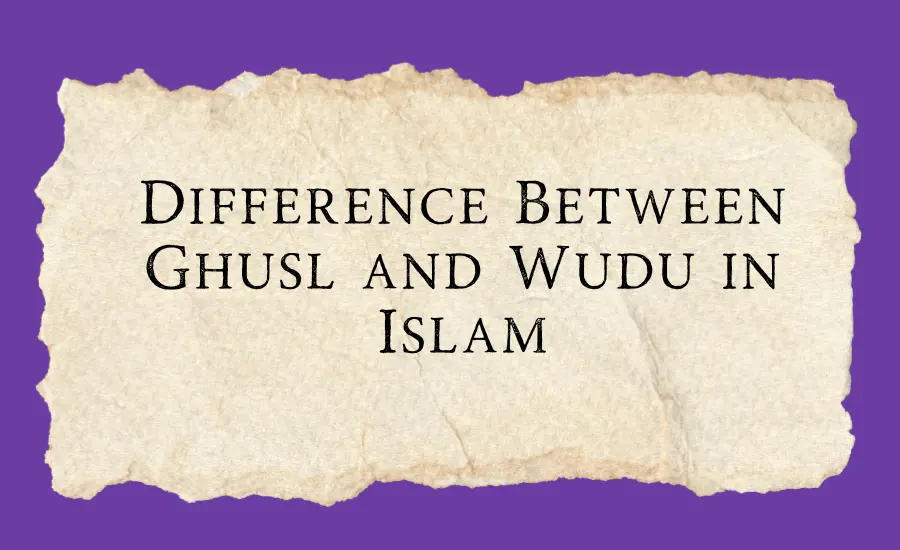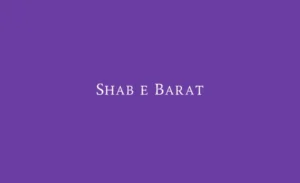Cleanliness is a cornerstone of Islam, and purification plays a vital role in preparing a Muslim for worship and spiritual connection with Allah. Two primary forms of ritual purification are wudu and ghusl, each with distinct purposes, rules, and spiritual significance. While wudu is a partial ablution performed to cleanse minor impurities before prayer, ghusl is a full-body ritual bath required for major impurities and special occasions.
Understanding the differences between ghusl and wudu is essential for every Muslim, as it ensures that acts of worship such as Salah, handling the Quran, and other devotional practices are performed in a state of complete purity. Both practices are rooted in Quranic guidance and the Sunnah of Prophet Muhammad (SAW), emphasizing that physical cleanliness is closely linked to spiritual well-being.
This guide will provide a comprehensive overview of ghusl and wudu, including their obligations, step-by-step methods, Quranic references, Hadiths, common misconceptions, and the spiritual and physical benefits of following these purification practices correctly. By mastering both, Muslims can approach worship with sincerity, discipline, and readiness, ensuring that every act of devotion fulfills the commands of Allah and aligns with the Sunnah.
What is Wudu?
Wudu is the partial ablution performed to remove minor physical impurities before prayer. It involves washing specific body parts:
- Hands up to the wrists
- Face
- Arms up to the elbows
- Wiping the head
- Washing the feet up to the ankles
Quranic Reference for Wudu
Arabic:
يا أيها الذين آمنوا إذا قمتم إلى الصلاة فاغسلوا وجوهكم وأيديكم إلى المرافق وامسحوا برؤوسكم وأرجلكم إلى الكعبين
Transliteration: Ya ayyuha alladhina amanu idha qumtum ila assalati faghslu wujuhakum wa aydiyakum ila almaraafiqi wamsahu bi ru’usikum wa arjulakum ila alka’bayn
English: O you who believe! When you rise to pray, wash your faces and hands to the elbows, wipe your heads, and wash your feet to the ankles. (Surah Al Maida 5:6)
Hadith Reference
Arabic:
الطُّهُورُ شَطْرُ الإيمَانِ
Transliteration: At-tahooru shatru al-iman
English: Purity is half of faith. (Sahih Muslim)
Wudu is a prerequisite for Salah (prayer), handling the Quran, and other acts of worship.
What is Ghusl?
Ghusl is a full-body ritual purification required for major impurities. It cleanses both physical and spiritual impurities and is mandatory in situations such as:
- After janabah (sexual impurity)
- After menstruation or postpartum bleeding
- Before Friday (Jumuah) prayer or Eid prayers (recommended)
- Before performing Tawaf (circumambulation of the Kaaba)
Quranic Reference for Ghusl
Arabic:
وَإِن كُنتُمْ جُنُبًا فَاطَّهَّرُوا
Transliteration: Wa in kuntum junuban fatattahiru
English: And if you are in a state of janabah, then purify yourselves. (Surah An Nisa 4:43)
Hadith Reference for Ghusl
Arabic:
اغتسل يوم الجمعة من الجنابة
Transliteration: Ightasil yawma al-jumuah min al-janabah
English: Perform ghusl on Friday if in a state of janabah. (Sahih Bukhari, Sahih Muslim)
Ghusl vs Wudu: Key Differences
Below is a table that will help you understand the major differences between ghusl and wudu.
| Difference between Wudu and Ghusl | ||
| Feature | Wudu | Ghusl |
| Type of purification | Partial (minor) | Complete (major) |
| Required for | Prayer, touching Quran, minor purification | Major impurities like janabah, menstruation, postpartum bleeding |
| Body parts washed | Hands, face, arms, head, feet | Entire body, including hair and scalp |
| Obligation | Before every prayer | After major impurities or specific recommended occasions |
| Spiritual impact | Ensures readiness for prayer | Cleanses major sins and prepares for full worship |
| Duration | Quick, few minutes | Longer, requires washing the entire body |
Step-by-Step Wudu Guide
Following each step of wudu and ghusl carefully ensures that purification is complete, both physically and spiritually. Performing these rituals with the correct intention, sequence, and attention to detail fulfills the requirements set by Allah and the Sunnah of Prophet Muhammad (SAW). This careful observance prepares a Muslim to engage in worship with sincerity, focus, and readiness.
Wudu Steps
Below are the necessary steps:
- Make the intention (niyyah) for purification.
- Wash hands three times.
- Rinse mouth and nose.
- Wash face three times.
- Wash arms up to elbows three times.
- Wipe the head and ears.
- Wash feet up to ankles three times.
Ghusl Steps
Follow the below steps:
- Make niyyah for purification.
- Say Bismillah.
- Wash hands and private parts.
- Perform wudu.
- Wash the entire body: head, right side, left side, ensuring water reaches every part.
- Recite the Shahada at the end (optional).
Benefits of Wudu and Ghusl
Following are the benefits of wudu and ghusl:
- Spiritual cleanliness: Prepares the soul for worship.
- Physical hygiene: Maintains health and freshness.
- Acceptance of prayers: Purity increases reward and focus in Salah.
- Following the Sunnah: Aligns with the practices of Prophet Muhammad (SAW).
- Mental clarity and discipline: Acts of purification refresh both body and mind.
Common Misconceptions
Clearing misconceptions about wudu and ghusl helps Muslims practice purification correctly and confidently. Understanding that both have specific purposes and conditions prevents invalid worship and ensures spiritual readiness. Following the authentic guidelines from the Quran and Hadith protects against errors and strengthens faith in daily acts of devotion.
- Ghusl is only for sexual impurity: False, it is also required after menstruation, childbirth, or recommended for worship.
- Wudu alone is enough for all prayers: False, major impurities require ghusl.
- Both practices must be done in a specific place: False, they can be performed anywhere with clean water.
Conclusion
Both wudu and ghusl are essential for maintaining physical and spiritual purity in Islam. While wudu prepares the body for daily prayers and minor acts of worship, ghusl cleanses major impurities and ensures readiness for complete acts of devotion. Following the correct steps, adhering to Sunnah practices, and understanding when each is required helps Muslims approach Allah with sincerity, humility, and complete cleanliness. Maintaining both forms of purification strengthens faith, brings spiritual reward, and ensures that every act of worship is accepted in the best manner.
Frequently Asked Questions (FAQs)
What is the difference between ghusl and wudu?
Wudu is a partial ablution required for minor purification before prayer, while ghusl is a full-body ritual bath required for major impurities like janabah, menstruation, or postpartum bleeding. Ghusl cleanses the entire body, whereas wudu cleans only specific body parts.
When is wudu required in Islam?
Wudu is required before every prayer, handling or reciting the Quran, and certain acts of worship. It is performed to remove minor impurities and prepare the body and soul for Salah.
When is ghusl obligatory?
Ghusl is mandatory after Janabah (sexual impurity), Menstruation (hayd), Postpartum bleeding (nifas), etc. It is also highly recommended before Friday prayer, Eid prayer, and performing Tawaf.
Can wudu replace ghusl?
No. Wudu is not sufficient for major impurities. If a person is in a state of janabah, menstruation, or postpartum bleeding, ghusl must be performed to achieve full purification.
Does ghusl remove sins like wudu?
Yes. While wudu removes minor sins, ghusl helps remove major spiritual impurities. Performing ghusl with sincerity purifies both body and soul.
Can women perform ghusl and wudu at home?
Yes, women can perform both ghusl and wudu in privacy at home. The steps are the same as for men, and the purification is valid.
Is reciting any dua necessary during wudu or ghusl?
Reciting a dua is not mandatory, but it is recommended to say Shahada after ghusl:
Arabic: أَشْهَدُ أَنْ لَا إِلَهَ إِلَّا الله وَأَنَّ مُحَمَّدًا عَبْدُهُ وَرَسُولُه
Transliteration: Ashhadu an la ilaha illa Allah wa anna Muhammad abduhu wa rasuluhu
English: I bear witness that there is no god except Allah and Muhammad is His servant and Messenger.
What are the benefits of performing wudu and ghusl regularly?
These both maintain spiritual and physical purity, increase reward and barakah in worship, enhance focus in Salah, promotes hygiene and mental clarity, and lets you follow the Sunnah of Prophet Muhammad (SAW).






